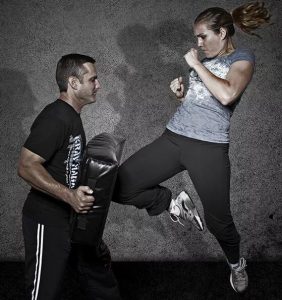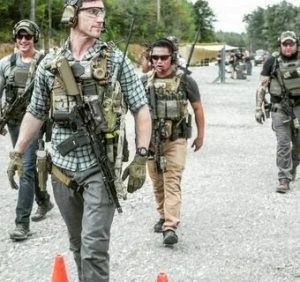In a world where unforeseen threats lurk around every corner, mastering the art of self-defense becomes not just a skill but a necessity. Whether it’s safeguarding oneself from physical harm or cultivating mental resilience, the journey of self-defense transcends mere physicality. Let’s delve into the essence of this art, exploring its multifaceted benefits and strategies for empowerment.
The Art of Self-Defense
Self-defense is more than just learning to throw punches or execute martial arts techniques. It encompasses a holistic approach to personal safety, encompassing physical, mental, and emotional aspects. At its core, self-defense is about asserting boundaries, staying vigilant, and equipping oneself with the tools to navigate potentially threatening situations.
Building Physical Strength and Agility
Physical prowess forms the foundation of effective self-defense. Regular exercise improves strength and agility, reflexes, and coordination. Martial arts disciplines like karate, judo, or taekwondo offer structured training regimes tailored to develop both offensive and defensive skills. Individuals can better protect themselves and respond decisively in aggressive scenarios by honing these physical attributes.
The Mindset of a Defender
Self-defense is as much about mindset as it is about physical prowess. Confidence, assertiveness, and determination play crucial roles in protecting oneself. Besides this, believing in your ability to defend yourself can deter potential attackers and give you the upper hand in confrontational situations. Cultivating a mindset of empowerment and resilience is essential for confidently navigating life’s challenges.
Cultivating Mental Resilience
Self-defense extends beyond physical combat to encompass mental fortitude. Confidence, awareness, and assertiveness are crucial in deterring potential attackers and de-escalating conflicts. Through mindfulness practices and situational awareness training, individuals can sharpen their instincts and develop a keen sense of perception. Moreover, creating a resilient mindset allows individuals to remain composed under pressure, making split-second decisions with clarity and confidence.
Empowerment Through Self-Defense
Mastering the art of self-defense is not just about learning how to give a punch or execute a kick; it’s about reclaiming your sense of agency and empowerment. Knowing you have the skills and confidence to protect yourself can transform fear into strength and vulnerability into resilience. Additionally, self-defense is not just a physical act; it’s a mindset—a declaration of autonomy and self-worth.
Harnessing the Power of Verbal Self-Defense
While physical confrontation is sometimes unavoidable, effective communication can resolve many conflicts. Verbal self-defense involves assertively expressing boundaries, de-escalating tense encounters, and asserting one’s rights without violence. By mastering the art of persuasion, active listening, and conflict resolution, individuals can navigate interpersonal conflicts with confidence and poise. Verbal self-defense empowers individuals to assert themselves in non-confrontational ways. Thus, diffusing conflicts and preserving relationships.
The Role of Education and Training
Education is pivotal in disseminating knowledge and dispelling myths surrounding self-defense. Comprehensive training programs for people of all ages and backgrounds equip them with essential tools and strategies for personal safety. Schools, community centers, and self-defense organizations are integral in offering accessible and inclusive training initiatives. Hence, empowering individuals to navigate the complexities of personal security confidently.
De-escalation and Conflict Resolution
While physical techniques are important, self-defense also involves knowing when to de-escalate a situation and resolve conflicts peacefully. Communication skills, empathy, and understanding can often diffuse potentially violent encounters before they escalate. Lastly, learning to assert boundaries assertively and confidently can deter potential threats without resorting to physical force.
Conclusion
In a world where personal safety is not guaranteed, mastering the art of self-defense is essential for navigating life with confidence and peace of mind. Secondly, by understanding the basics, cultivating the mindset of a defender, and consistently training and practicing, anyone can learn to protect themselves effectively. Moreover, self-defense is not only about physical techniques; it’s about empowerment and reclaiming control over one’s own safety and well-being. So, learn self-defense and empower yourself to face any challenge that comes your way. Contact us now if you want to know complete self-defense in the shortest time period.












